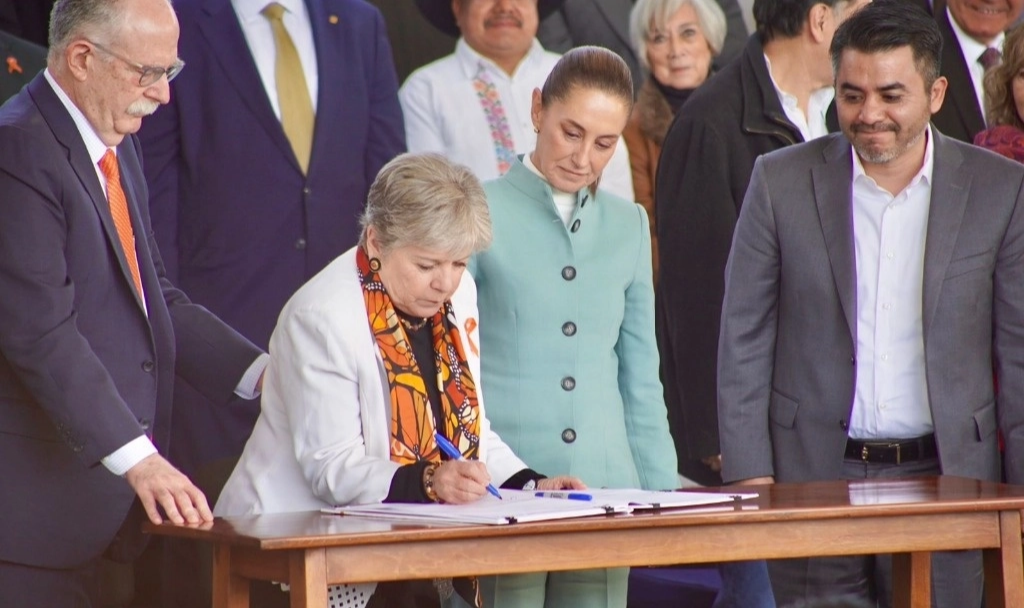
This pact is the result of a consensus between government officials, intellectuals, and private and state companies. Photo: La Jornada
Mexico City, November 27 (RHC)-- In Mexico City, the National Agreement for the Human Right to Water and Sustainability was formalized, signed by the president of Mexico, Claudia Sheinbaum, in the company of her cabinet, with the purpose of eliminating the lack of water that affects a large part of the country.
This pact is the result of a consensus between various government officials, academics, representatives of the business sector, as well as indigenous communities and peoples, and establishes ten fundamental commitments.
Its guidelines include the modernization of agricultural irrigation techniques, backed by a budget of 459 million dollars. The investment is intended to increase productivity, since agriculture represents 70 percent of the water used in the national territory and the scarcity of the vital liquid currently affects 35 million people in Mexico unequally, which is equivalent to a quarter of the population.
Given the seriousness of the situation, President Sheinbaum indicated that "it is essential to regulate the concessions, through an agreement that establishes a single registry of concessions and water rights for essential uses."
This agreement is part of the government plan, since it is part of the National Water Program and represents "a step towards a comprehensive model of sustainable development that overcomes the extractivist, privatizing and unequal vision of the neoliberal period," according to Alicia Bárcena, head of the Secretariat of the Environment and Natural Resources.
With the implementation of the plan and the agreement, it is essential to carry out the reforestation of forests and the protection of wetlands to mitigate the effects of climate change, it was indicated.
[ SOURCE: LA JORNADA ]

